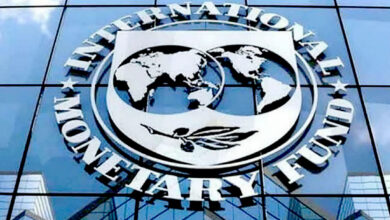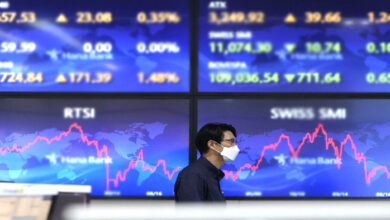Asian stocks decline due to concern about the missile strike in Poland.

As investors sought more information on a potential Russian missile assault on Poland, Asian stock markets declined on Wednesday. However, anticipation that the Federal Reserve would hike interest rates more slowly helped limit losses.
As investors locked in a stellar three-day gain streak, Hong Kong stocks had the worst day, with the Hang Seng index down 1.1%. With recent increases, the Hang Seng has come very close to confirming a bull market rally from recent lows.
Shanghai Shenzhen CSI 300, a measure of China’s blue-chip companies, dropped 0.8%, while the Shanghai Composite declined 0.4%. As the nation battled a new wave of COVID-19 infections, weak economic data from the nation continued to seep in. A reading on Wednesday revealed that Chinese housing values experienced their greatest drop in seven years in October.
Nevertheless, recent sessions saw a rise in Chinese stocks amid some optimism regarding the relaxation of COVID-related limitations.
Following reports that two individuals were killed by a Russian-made rocket in eastern Poland on Wednesday, risk-sensitive markets fell. If the attack was carried out by Russia, it would be the first time since Moscow invaded Ukraine that a NATO member had been attacked by Moscow.
The action might also herald an escalation in the confrontation between Russia and Ukraine, especially in light of NATO involvement. However, early remarks from Moscow and Washington imply that such an outcome might not occur.
Related: Asian stocks go up on hopes that China will reopen and follow Wall Street.
As a result of the global economic disruptions brought on by Russia’s invasion of Ukraine earlier this year, Asian markets crashed, and traders now fear additional disruptions.
On Wednesday, the demand for safe haven assets benefited the dollar and gold.
Some Asian markets ended the day with gains. India’s blue-chip Nifty 50 index increased 0.1% as this week’s lower-than-expected inflation statistics fueled expectations that the Reserve Bank of India will hike interest rates gradually in the months to come. Due to India’s promising economic outlook for this year, the Nifty 50 has recently outperformed its Asian counterparts.
As a result of data showing stronger-than-expected wage growth in the third quarter and some resilience in the Australian economy, Australia’s S&P/ASX 200 index declined substantially less than those of its competitors.
Data showing that U.S. producer inflation hit a 14-month low in October helped to somewhat temper larger losses in Asian markets. The reading increased hopes that the Federal Reserve will raise rates more gradually, which is good news for markets that reward risk.





